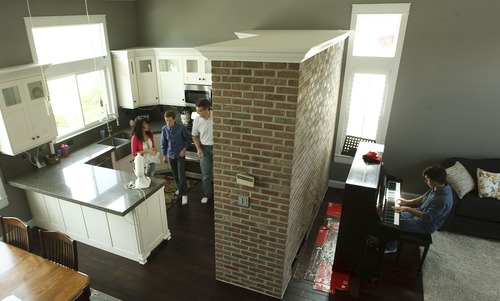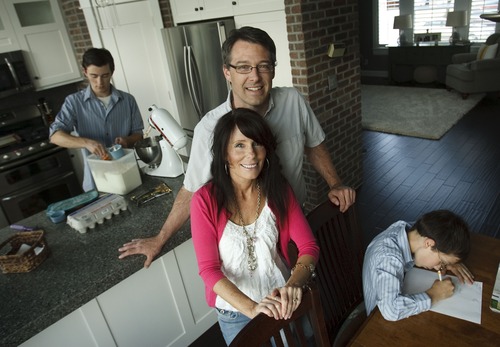This is an archived article that was published on sltrib.com in 2013, and information in the article may be outdated. It is provided only for personal research purposes and may not be reprinted.
From buying shoes to ordering furniture to paying bills, American consumers love e-commerce. But what about finalizing the largest financial transaction most people will ever make with just the click of a mouse?
Yep, closing on a house is going digital. Forget the hours of meetings with mortgage brokers and hand cramps from signing a ream of paper. Now, Utah house hunters and refinancers can apply for a mortgage from at least one key lender, submit all the required forms and documents, ask questions and even sign on the dotted line using a laptop on the living room sofa.
Mountain America Credit Union (MACU) rolled out its Quick Close paperless mortgage service as an option about 18 months ago and so far, about 500 Utahns have used it, said Amy Moser, MACU vice president of mortgage services. She says it's a matter of convenience for customers.
"They just have to sign once in front of a witness on a digital signature pad. They get the entire document on a thumb drive, and they go home," Moser said. "It's easier for the consumer."
It worked for MACU customer Adam Lowry. He and wife Allison refinanced their 14-year-old West Jordan home this spring to take advantage of record-low interest rates. With four kids and busy schedules, the online option made sense for them.
"At 9 o'clock at night, after the kids were in bed, we could sit around the computer and go through paperwork," Adam Lowry said.
He estimated completing the refinancing online saved him at least three hours in meeting and travel time, but he especially valued the extra time the couple had to comb over the fine print at home.
"[The paperless mortgage] really allowed us to be as careful and particular as we wanted to as we were going through the process," Lowry said. "There wasn't anybody standing over us saying, 'OK, we've got to sign all these things because I've got another appointment in 20 minutes.' "
Lowry said he did have to physically sign about seven documents that required a notarized witness, but other than one short meeting, he completed the transaction through phone calls, emails and online forms.
"I didn't even meet [my loan officer] until closing," he said.
Although the legal capability to go paperless has been around for about a decade, it's taken awhile for e-mortgages to go mainstream. According to a recent piece in National Mortgage News, only about 5 percent to 10 percent of closings are done digitally.
Part of the delay has been making sure the details in the lending process were sound. MACU's Moser said the credit union has spent the past five years ensuring that local governments have the capability to record electronic trust deeds, training title companies in the specialized software that makes e-mortgages possible and educating its own employees on how to use digital signature pads.
But the hold-up is also partly due to wary consumers.
"There's a mind-set that mortgages have always been paper," Moser said.
But minds are changing, said David Luna, legislative officer with the Utah Association of Mortgage Professionals and president of Mortgage Educators and Compliance, a company that trains mortgage brokers.
"Some people just feel that they need to touch the document," Luna said. "But for the new generation of individuals who actually grew up on iPads and tablet devices, [a paperless mortgage] does not seem as scary."
He predicts digital mortgages will all be paperless in the near future, pointing to industries that have also gone digital such as insurance, law enforcement and pharmaceuticals.
"Yeah, the mortgage industry can and eventually will embrace this technology," he said.
Twitter: @jnpearce





